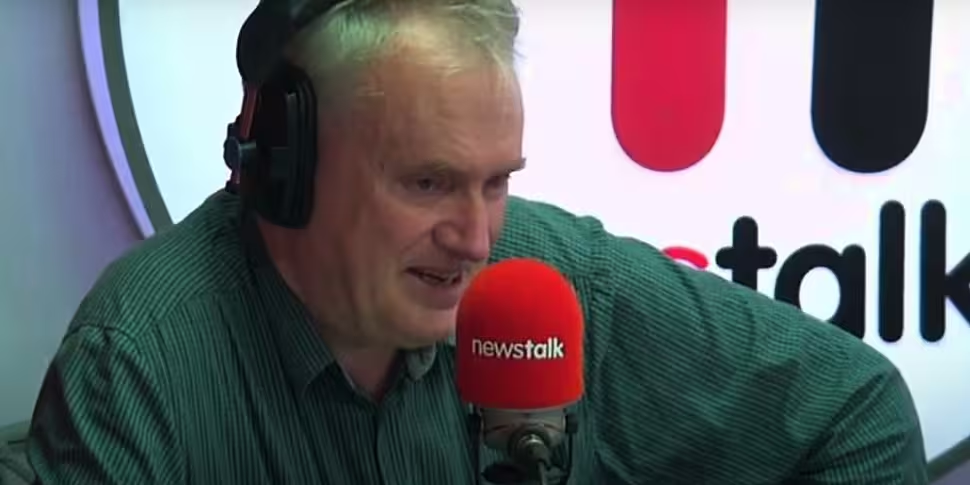Professor Luke O'Neill says increased mixing and mingling is causing a high COVID-19 infection rate, despite a high vaccine uptake.
He was speaking as the head of the HSE, Paul Reid, says 86 people are in intensive care with the virus and this is likely to increase.
It means just 15 ICU beds are free across the country at present.
Mr Reid says the situation can be turned around with heightened individual and collective awareness in the coming weeks.
Now 86 patients under intensive critical care with #Covid19. This represents almost 30% of ICU beds. This is likely to increase. None of us want to be that person. We can turn this around with heightened individual and collective awareness over the coming days & weeks. @HSELive
— Paul Reid (@paulreiddublin) October 21, 2021
Prof O'Neill told The Pat Kenny Show increased socialisation is causing pressure on the hospital system.
"It's obviously human bahaviour is the big part of this - mixing and mingling and socialising.
"It will spread if the population mixes - and vaccinated people do get infected, remember, even though it doesn't progress into severe disease.
"Vaccine waning, there's a bit of evidence for that as well - so it's a mix of things.
"But it looks like it's mainly to do with people mixing and mingling is the main reason.
"The UK proximity's a big one - that's got the highest cases in Europe now - so a lot of travel between our two countries."
On boosters, he says Israeli data suggests they are working very well.
"Over-60s [saw] a massive drop-off in cases after boosting, that's the key thing.
"There was at least an 80% decrease in the over-60s of risk of hospitalisation and severe disease post-boosting.
"And because so many millions were looked at, the [US] FDA said 'Yeah we believe that data, so we're going to approve boosters in America as well'".
The Chief Medical Officer Dr Tony Holohan has said it is not a guarantee that booster shots will be rolled out to the general population.
While the Taoiseach Micheál Martin said rolling out the doses outside of vulnerable groups will be a "very important" part of the COVID-19 response.
It was confirmed on Tuesday that booster shots will be given to everyone aged over 60.
But Prof O'Neill says people who have recovered from the virus, and were subsequently vaccinated, may not require any booster.
"If you've been infected and then you're vaccinated... you get twice the level of antibodies six weeks out, and four-times 29 weeks out than someone who hadn't been infected before.
"So in other words: if you've been infected it's like a shot of the vaccine, if you like, and then you get the two shots and it's like getting a booster in a way.
"The reason this is important is they may not need boosting... so that means we mightn't have to give the booster to people who have evidence of infection and then have been through a full vaccine course with either AstraZeneca or Pfizer.
"So it's quite good news in a sense because you might spare vaccine supply".









